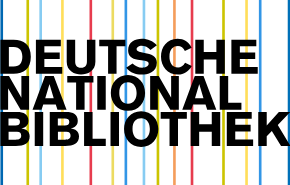UZBEKISTAN IN MATTERS OF SOCIO-ECONOMICS - NEW PERSPECTIVES
Abstract
This article provides an overview of economic sociology using the example of the Uzbekistan, where there are unique problems associated with the transformation of socio-economic relations during the post-Soviet adaptation of the republics that were part of the Soviet Union. Social inequality, discrimination and inequality based on race, ethics, religion or gender, lack of inclusivity – these and many other social challenges and problems that our society faces require finding solutions and optimal solutions to the situation, as society and the development of society directly affect the economy of the country as a whole, the stability of society. and the quality of life of the citizens of the entire Central Asian region and each country. Social justice creates stability in market relations and promotes economic growth, and equal rights and opportunities create the necessary level of trust in society for growth and development. The article analyzes the changes that have taken place since the independence of the republics, as well as the post-pandemic period, which made significant adjustments to the lives of citizens of Central Asian countries.
Keywords
socio-economics, economic sociology, WTO, social services, economic integration.How to Cite
References
3.Usmankhodjaeva Surayyo Mukhtarovna DIGITAL TRANSFORMATION OF UZBEKISTAN ON THE EXAMPLE OF MARKETPLACES // Raqamli iqtisodiyot (Digital economy). 2023. №5. Available at: https://cyberleninka.ru/article/n/tsifrovaya-transformatsiya-uzbekistana-na-primere-marketpleysov (accessed: 26.05.2024).
4. https://touristichka.ru/uzbekistan-poleznaya-informacziya-1/kalendar-meropriyatij-2023/2page/
5.https://ru.wikipedia.org/wiki/ Babur#:~:text=Zahir%2Dad%2Ddin%20Muhammad%20Babur, commander%2C%20poet%20i%20state%20 figure.
6. https://ru.wikipedia.org/wiki/ Ulugbek#Political_and_scientific_activity
7. https://ru.wikipedia.org/wiki/ Suleiman_I
8. https://ru.wikipedia.org/wiki/ Topkapi
9. https://abaidan.kz/ru/categories/turizm/turciya-zavershaet-2023-god-s-rekordnymi-pokazatelyami-turizma-2024-02-04#:~:text=How%20Announced%20Ministry%20Culture%20and,Night%20For %20Overnight Stays%20Reached%20%2499.
10. https://www.un.org/ru/documents/decl_conv/declarations/manila_declaration.shtml
11. https://www.lex.uz/docs/4428101
12. Kvartalnov V.A., https://tourlib.net/books_tourism/kvartalnov_pril.htm
13. Surayyo U. UZBEKISTAN IN THE AGE OF DIGITAL AND SOCIAL ECONOMY //Talqin va tadqiqotlar ilmiy-uslubiy jurnali. – 2024. – Т. 2. – №. 15. – С. 72-80.
14. https://www.atorus.ru/news/press-centre/new/40178.html
15. Donskova L.I. Issledovanie sotsial'nogo turizma zarubezhnykh avtorov: teoriya i praktika [Study of social tourism of foreign authors: theory and practice]. 2018. №8.
16. Usmankhodzhaeva S. M. DIGITAL ECONOMY AND SOCIETY–ADVANTAGES AND DISADVANTAGES // Raqamli iqtisodiyot (Digital economy). – 2024. – №. 7. P. 101-110
17. Donskova L. I. EUROPEAN EXPERIENCE OF SOCIAL TOURISM DEVELOPMENT (SCIENTIFIC REVIEW OF FOREIGN AUTHORS) // STANDARDIZATION AND CERTIFICATION. – 2018. – P. 277.
18. Mukhtarovna U. S. THE IMPACT OF DIGITAL TECHNOLOGIES ON THE SOCIO-ECONOMY IN UZBEKISTAN //Yangi O ‘zbekiston ustozlari. – 2024. – Т. 2. – №. 30. – С. 141-151.
19.https://www.norma.uz/novoe_v_zakonodatelstve/utverjdeny_dopolnitelnye_mery_po_razvitiyu_turizma
20.Usmankhodjaeva S. M. ON PROBLEMS IN IMPROVING THE POSITIONS OF UZBEKISTAN IN INTERNATIONAL RATINGS AND INDICES: THEORY, PRACTICE AND STRATEGY. – 2023. – T. 2. – №. Special Issue 13. – P. 630-633.

This work is licensed under a Creative Commons Attribution 4.0 International License.
Authors retain the copyright of their manuscripts, and all Open Access articles are disseminated under the terms of the Creative Commons Attribution License 4.0 (CC-BY), which licenses unrestricted use, distribution, and reproduction in any medium, provided that the original work is appropriately cited. The use of general descriptive names, trade names, trademarks, and so forth in this publication, even if not specifically identified, does not imply that these names are not protected by the relevant laws and regulations.






